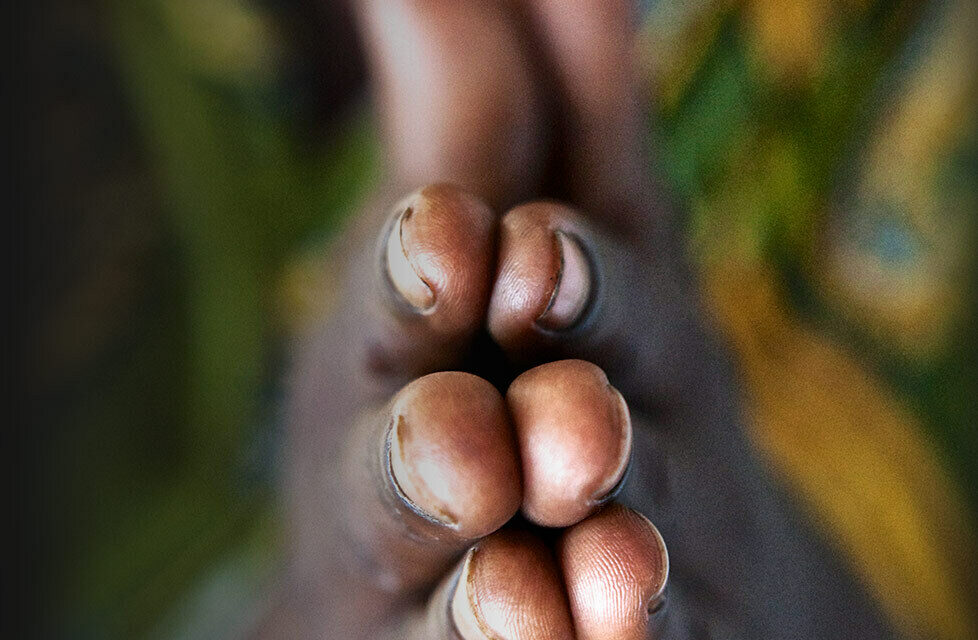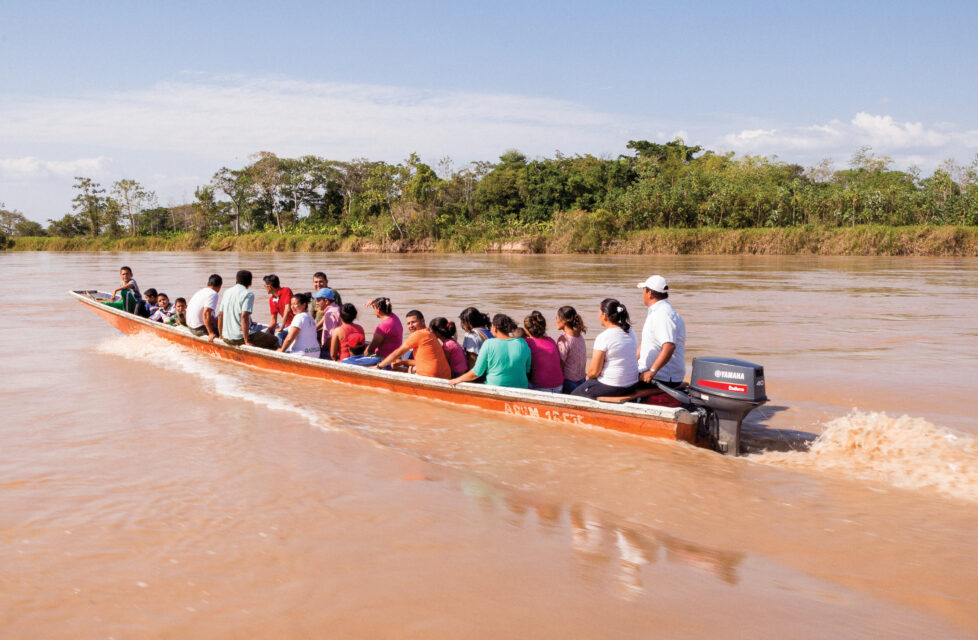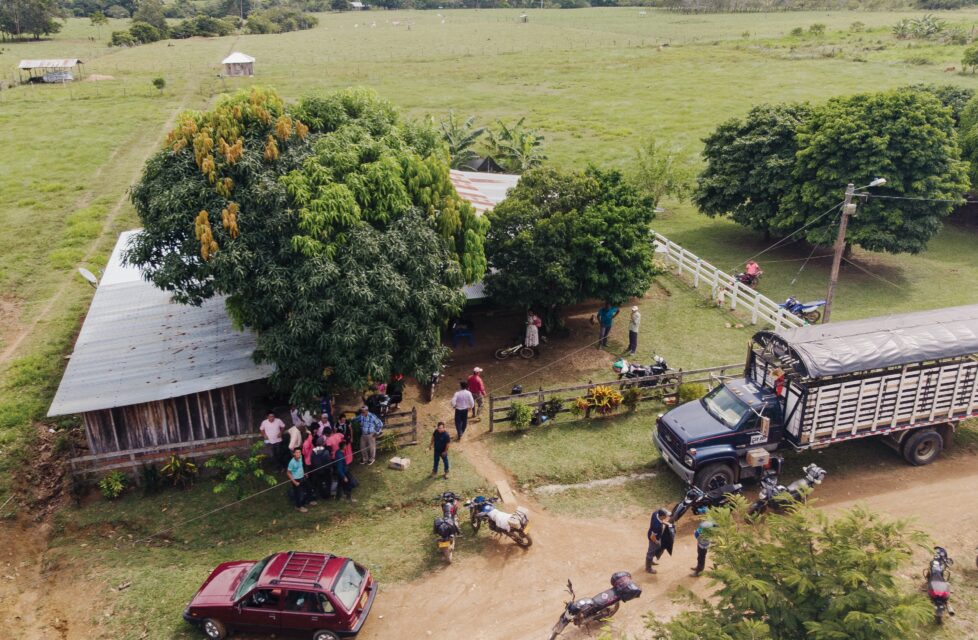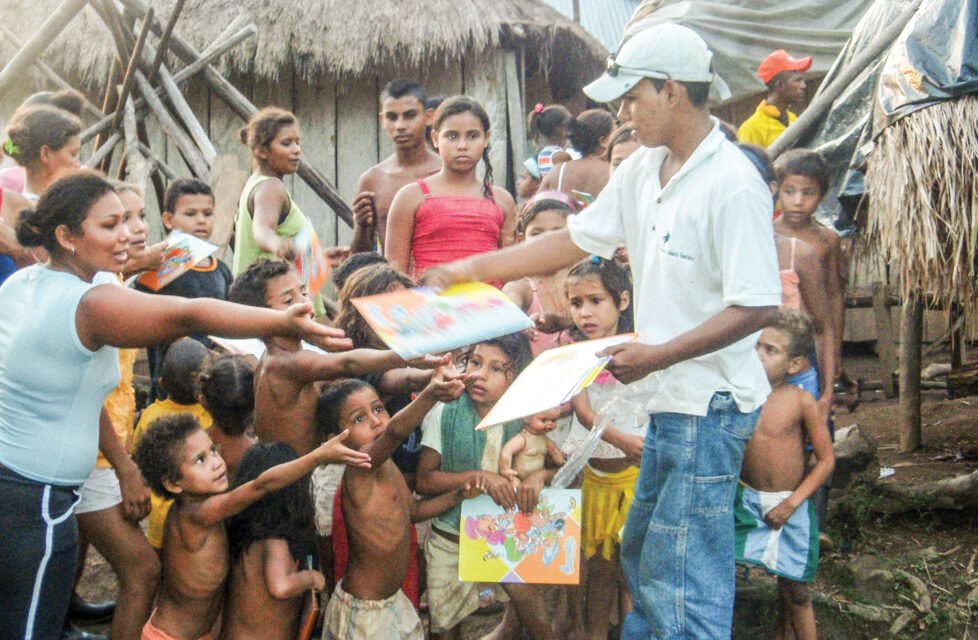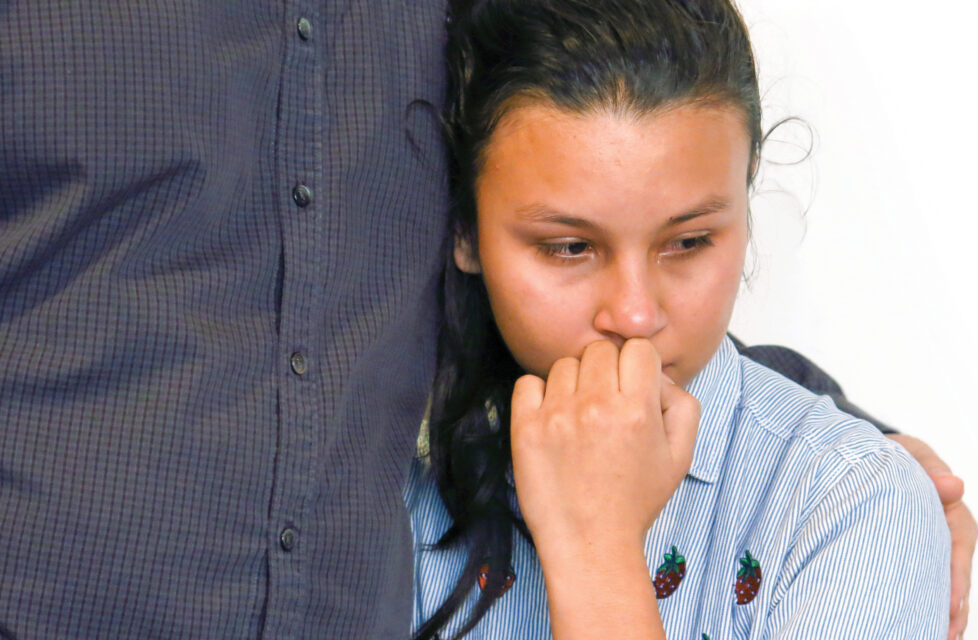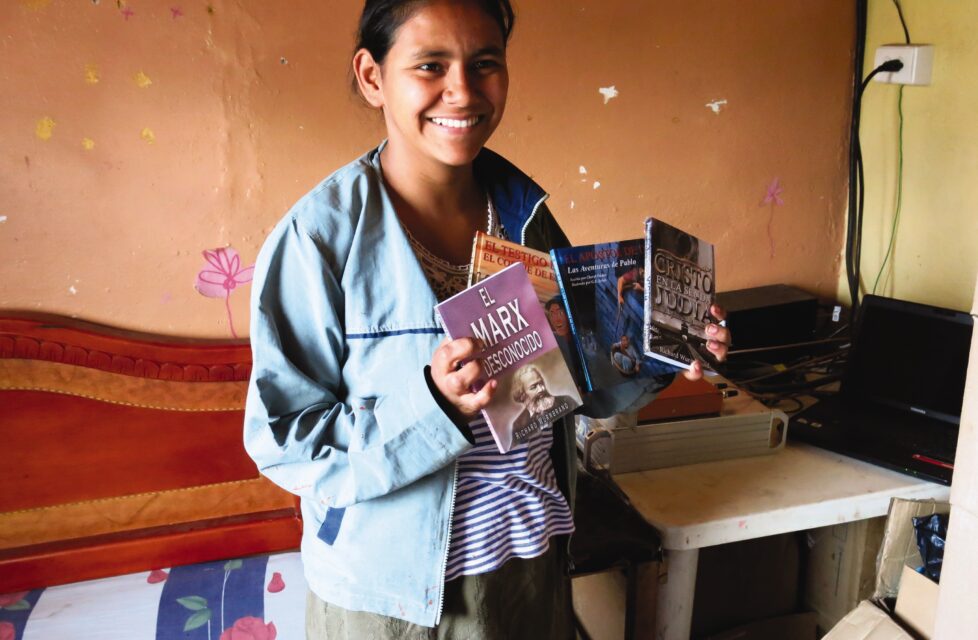Jaime and Ana Luz have ministered in one of Colombia’s “red zones,” areas under guerrilla control, for nine years. In early 2024, they received a phone call from a member of the guerrilla group Revolutionary Armed Forces of Colombia (FARC) demanding they pay four million pesos [roughly $1000] in half an hour or their two children, ages 8 and 9, would be killed. The family paid a portion of the demanded amount but have received threatening phone calls and letters slipped under their door. Still, Jaime and Ana Luz remain committed to advancing the gospel in this area.
Read MoreTeoboldo and Denise minister in one of Colombia’s “red zones,” areas dominated by guerrilla violence and illicit activity associated with illegal drug trade. They have been threatened and confined to their house; at other times, they have been forced to cancel worship services because of threats. They’ve had friends killed for refusing to comply with the warnings from guerrillas, yet they remain faithful amid the risk. “This is the area where God has placed us. That is where we are going to stay until God tells us otherwise,” Teoboldo said. The couple has three children, but their middle child died two years ago from complications during heart surgery.
Read MoreRodrigo and Astrid have planted eight churches in the region of Sucre, one of Colombia’s “red zones,” or dangerous areas controlled by guerrilla activity. The guerrillas have extorted them, prohibited them from having services, issued curfews and threatened them. Their oldest grandson has a child with a guerrilla officer, and they fear for his life and the life of their 4-year-old great-granddaughter. Their 14-year-old grandson, who lives with them, has also shared his desire to join a guerrilla group, enticed through the promise of material gifts and financial incentives.
Read MoreJavier and Katherine lead a church in Buenaventura, considered to be the most dangerous city in Colombia. The couple ministers by caring for the needs of the community, which has drawn negative attention from the guerrillas who control the area. Through Javier and Katherine’s ministry, many have placed their faith in Christ and lives have been transformed, which has brought further opposition. Their lives have been threatened, and they have been forced to move several times, but they remain committed to sharing the hope of Christ. Earlier this year, Katherine was held at gunpoint by her brother-in-law, a guerrilla commander, while Javier was trapped, unable to help her.
Read More“We are all mortals until God says, ‘Your time is finished,’” said Mauricio, who works as a pastor in a Colombian “red zone” along with his wife, Dena. “We understand that we live in constant danger.” The stranger sat down in Dena’s living room chair and made himself comfortable. “Your husband has been gone for three days,” he said knowingly. “He is far from home.” The man then began pulling his shirt off, revealing a crudely stitched knife wound on his shoulder. “I need a shower,” he demanded, “and I need some food.” Realizing that he could be a member of the paramilitary group that controlled her area, Dena wasn’t surprised that he knew her husband was gone. Villagers often shared information out of fear of the paramilitary, which emerged as one element of a long-standing conflict involving government forces, drug cartels and guerrilla groups like the FARC (Armed Revolutionary Forces of Colombia). Dena could tell that the man was only trying to frighten her into doing what he wanted. “Give me your money,” he ordered, staring at the paper pesos in her hand. Church members had brought her the timely gift earlier that day; the church knew it wasn’t
Read MoreA front-line worker in Colombia reported that he has lost contact with several pastors in the Sucre area in recent months. The state of Sucre is one of Colombia’s “red zones,” where Marxist guerrillas and paramilitaries exercise violent control over large areas. These groups have recently imposed new restrictions against Christians and churches.
Read MoreAsking for permission to preach is a way of life for “Leonardo.” Merely forgetting or refusing to ask can result in death at the hands of the guerrillas or paramilitaries in Colombia’s “red zones.” Pastors in these areas are viewed as obstacles to the groups’ political ambitions because young people who become Christians are no longer attracted to the groups’ violent lifestyles. “They give you a time to start preaching, and you have to begin and be done at that time,” Leonardo explained. “There was no nighttime preaching or walking outside [allowed], and I always had to give a note if I was going to go anywhere.” Leonardo’s church soon transferred him to a different area, where he worked with people who had been displaced by guerrilla groups in the red zones. But his new home was not free from opposition, either. “There are gangs, hitmen,” he said. “I have been there two years. Two times they have not let me preach.” The gangs stopped Leonardo in front of his church and denied him entrance, saying, “Today no preaching!” But Leonardo found another place to preach. With a speaker and microphone in hand, he began preaching outdoors. He first began
Read MoreAs the sound of gunfire grew louder, 10-year-old Luis and his brother ran to their room and crawled under their bed. They knew the gunfire meant guerrilla fighters from the Revolutionary Armed Forces of Colombia (FARC) were again attacking their small jungle village in one of Colombia’s “red zones,” particularly dangerous areas. When soldiers from the Colombian Army arrived to repel the attack, the guerrillas took the boys’ father hostage to aid their escape. Although they released him four hours later, fighting between the guerrillas and government forces dragged on for days. Many of Luis’s friends were killed in the attack. All Things Made New Luis found true peace in Christ at age 13 and immediately felt the need to help people in villages like his who had suffered from the decades-long insurgency. “He told me He was my God and my Father, and He would always be there for me,” Luis said. “I felt the love of God come back in my life.” Using his small savings, Luis bought books, games and other items to distribute in his old village, which remained under threat. He also brought New Testaments and gave them to everyone he met, including police officers,
Read MoreLiliana struggled with faith after her father’s murder by Marxist guerrillas in Colombia, but God provided healing and is leading her to use her testimony to help people in another war-torn country. Liliana didn’t choose to grow up in Colombia’s treacherous frontier region, where Christians sometimes receive death threats just for attending church. And she didn’t choose to watch her family’s faith erode in a torrent of grief after her father’s murder. But she sees now that God used these trials and setbacks to direct His purpose for her life. And for Liliana, with that purpose came redemption and healing. Liliana’s parents, Amelo and Christina, moved to one of Colombia’s most treacherous areas to serve as church planters before Liliana was born. They were sent to pastor a church in the notoriously dangerous region along the Colombia-Venezuela border, where the Colombian military struggled to suppress a guerrilla insurgency by the Armed Revolutionary Forces of Colombia (FARC). The FARC funded its rebel activities in part with cash from Colombia’s lucrative cocaine trade. And in response, drug lords formed right-wing paramilitary groups to counter the FARC’s incursions into their drug-trafficking monopoly, forming a third front in the chaos of Colombian violence. Although
Read MoreElmer sat in a cave, listening to the howling wind and the hail pounding the rain-soaked earth. Surrounded by darkness and fearing for his life, the FARC guerrilla commander had much time to think and much to think about. He was being pursued by a FARC commander one rank below him as well as by government soldiers. The commander was jealous that Elmer had been promoted after government soldiers killed the previous top commander. And the government had placed a 200-million-peso (about $98,000 USD) bounty on his head that made him that much more of a target. Elmer saw only one solution. It was the solution that he had been taught in more than 30 years of indoctrination with Marxist teachings: “In situations like this, taking my life is my only way out,” he thought. He grabbed his gun and lifted it to his head. But when he tried to pull the trigger, he heard a voice saying, “Don’t do it.” He tried two more times, but each time he heard the voice, preventing him from pulling the trigger. The fourth time he tried, the hail and rain suddenly stopped. “Don’t do it,” the voice said again. “I love you.
Read More
